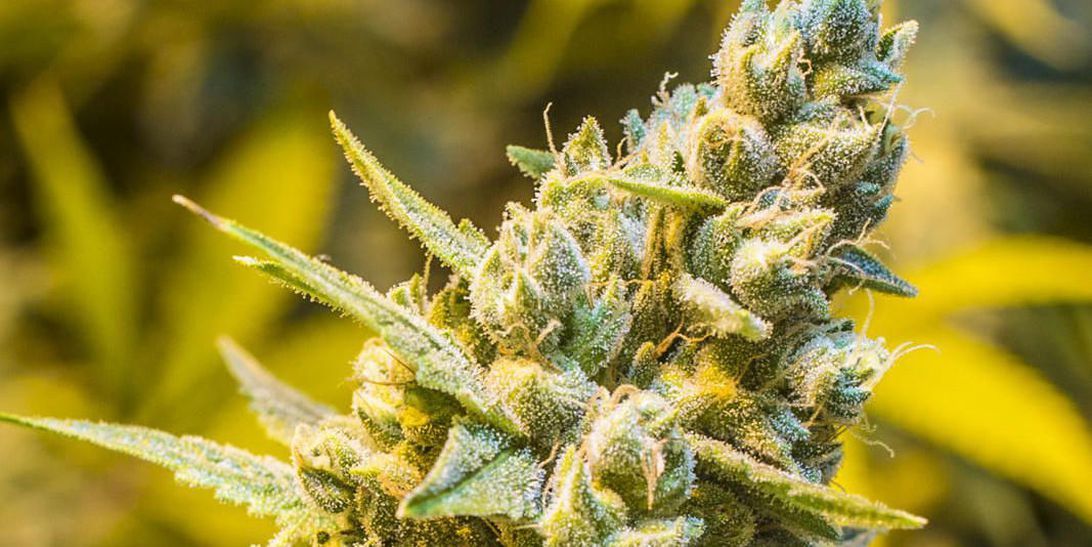ACT October Update – Cannabis News
Election season is upon us and we are fast approaching the big day, when voters will cast their ballots in the 2020 Presidential Election. Every business is significantly impacted by political developments, but few industries are so directly tied to public policy these days as the cannabis industry. In this news update, we’ll take a look at developments in both state and federal government regarding cannabis reform, as well as tax policy and new guidance from the IRS. Here’s a look at some of the policy shifts and upcoming elections central to the cannabis industry, and what you need to know.


IRS Adds Cannabis Page to Website
The U.S. Internal Revenue Service (IRS) has added a cannabis industry page to its website. The page includes information about income reporting, cash payment of taxes, which forms are applicable to large cash payments, quarterly estimated payments, and record keeping requirements.
The webpage was launched after a report from the IRS, describing the need for increased audits of cannabis businesses, was widely publicized. The guidelines are included in a series of links on the IRS webpage, which include a series of FAQs and other information relevant to many cannabis businesses, such as how to pay your tax bill with large amounts of cash.
The move by the IRS could be seen as a way to step up monitoring of taxation of cannabis businesses, which technically operate in a federally illegal industry. As a result, certain tax deductions and credits do not apply to cannabis businesses, and the taxation of cannabis businesses is not as straightforward as that of businesses in other industries. If you have any questions about your tax obligations as a cannabis business owner, call ACT Resources today.
Nebraska State Supreme Court Strikes Down Medical Cannabis Ballot Initiative
The Nebraska State Supreme Court ruled last month that an initiative to legalize medical cannabis cannot appear on the state ballot this Election Day. The ruling came down after members of the court determined the ballot initiative would violate the state’s “single-subject rule”, upholding the argument of Sheriff Terry Wagner that patient access, retail sale, and distribution were all separate issues rolled into one ballot initiative.
“As proposed, the [Nebraska Medical Cannabis Constitutional Amendment] contains more than one subject—by our count, it contains at least eight subjects,” the court wrote in its opinion. “If voters are to intelligently adopt a State policy with regard to medicinal cannabis use, they must first be allowed to decide that issue alone, unencumbered by other subjects.” The result of the ruling means only five states will have a cannabis legalization initiative of some kind on the ballot, including Arizona, Mississippi, Montana, New Jersey and South Dakota.
● Arizona: Voters in Arizona have the chance to approve the legalization of adult-use cannabis in a state where the market is projected to be worth $750 million annually.
● Mississippi: Mississippi voters will have to medical cannabis legalization initiatives to choose from, one put forward by petitioners and the other put forward by state legislators.
● Montana: Montana is already home to a multimillion-dollar medical cannabis industry, but this year voters could approve an expansion into the adult-use space as well.
● New Jersey: The Garden State has been trying to legalize adult-use cannabis unsuccessfully for some time. This year, voters will have the chance to approve the measure at the ballot box in a state where the industry could eclipse $1.5 billion in value annually.
● South Dakota: South Dakota voters could make history by becoming the first state to legalize both medical cannabis and adult-use cannabis in one fell swoop.


U.S. House Delays Historic Vote on the MORE Act
The U.S. House of Representatives was poised to make history by holding a floor vote on the Marijuana Opportunity, Reinvestment and Expungement (MORE) Act, which would deschedule cannabis under the U.S. Controlled Substances Act and expunge some cannabis-related criminal convictions. However, last month, House leadership moved to delay the vote. The delay was reportedly related to concern from moderate lawmakers in competitive reelection contests who feared voting on the measure could harm their chances of reelection.
While the chances the MORE Act passed the House, Senate, and received a presidential signature were always slim, the vote would have represented the high watermark for cannabis reform efforts on Capitol Hill. The vote is expected to occur after Election Day.
IRS Releases Updated Tax Guidance for Cannabis Businesses
In the wake of a report calling for increased audits on cannabis businesses, the U.S. Internal Revenue Service (IRS) offered updated guidance for how cannabis businesses should adhere to tax policy. The guidance, which was released last month, includes information on how non-banked cannabis businesses should pay their taxes in cash, as well as reporting income and keeping financial records.
One key element of the guidance included clarification on the much-discussed Section 280E, which prevents cannabis businesses from taking tax deductions and credits, since cannabis remains illegal under federal law. However, the guidance suggests cannabis businesses could in fact deduct the cost of goods sold from their tax bill, after all. The section reads:
“Section 280E does not … prohibit a participant in the marijuana industry from reducing its gross receipts by its properly calculated cost of goods sold to determine its gross income … Taxpayers who sell marijuana may reduce their gross receipts by the cost of acquiring or producing marijuana that they sell, and those costs will depend on the nature of the business.
“Accordingly, a marijuana dispensary may not deduct, for example, advertising or selling expenses. It may, however, reduce its gross receipts by its cost of goods sold, as calculated pursuant to Internal Revenue Code section 471,” the guidance read.


In the cannabis business, you have to ACT smart
The cannabis industry is an everchanging place, complicated by unique regulations and restrictions. Despite this, the cannabis industry is one of the fastest growing sectors of the national economy, with significant opportunity for businesses of all types. For that reason, a knowledgeable and experienced accounting partner is essential for success. If you need assistance with accounting and taxation for your
cannabis business, don’t wait – ACT today!




